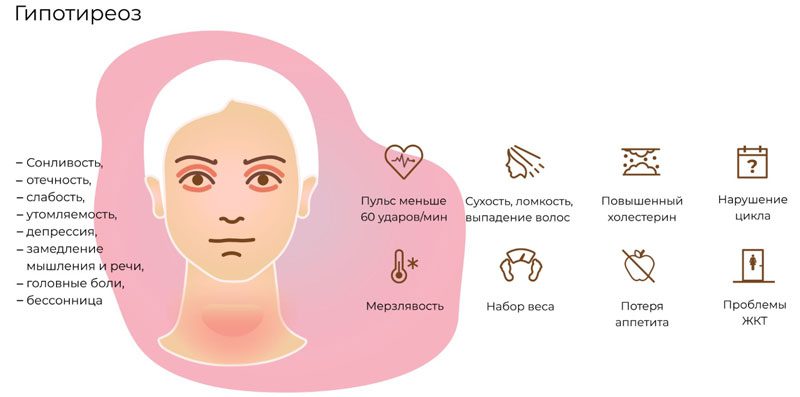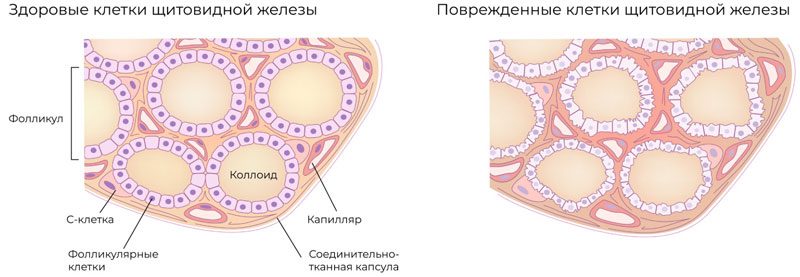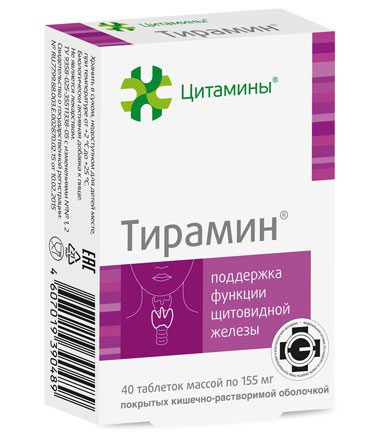Contents
Every 5th person faces fatigue. This is a complex of symptoms for which the nature, weakness, lethargy, a sense of physical and mental discomfort. As a result, the quality of life decreases, a person loses interest in what is happening, working capacity decreases and conflicts appear in the family. Sometimes these signs are attributed to overwork at work. However, the reasons may be much broader.
Why does fatigue occur?
If, despite proper rest and an 8-hour night’s sleep, you still feel tired and overwhelmed, then most likely the fatigue is pathological. The main reasons that lead to this condition are as follows:
transferred viral and bacterial infections;
neurasthenia is an independent neurological disease;
burnout syndrome;
deficiency of the immune system;
disorders of the endocrine system.
Hypothyroidism and iodine deficiency as causes of fatigue
The thyroid gland controls almost all processes in the human body. Its activity determines the usefulness and correctness of metabolism, the functional state of the nervous system and literally the work of each cell. If there is little thyroid hormone produced (this condition is called hypothyroidism), then the metabolic rate decreases, the transmission of nerve impulses slows down, and the body goes into “inhibition” mode.
One of the main reasons for the decrease in the functional activity of the thyroid gland and the resulting fatigue and increased fatigue is iodine deficiency. The body of a healthy person contains about 20 mg of this trace element, of which 80% is in the thyroid gland.
Iodine comes to a person with food and is easily absorbed in the gastrointestinal tract, then entering the extracellular space. From the blood, this mineral easily penetrates into various organs and tissues, and a significant part is selectively absorbed by the thyroid gland.
Every day, about 75 micrograms of iodine is consumed for the synthesis of thyroid hormones – thyroxine and triiodothyronine. Thyroxine is predominantly produced in the thyroid gland. In other tissues and organs, under the action of the enzyme tyrosinase, 1 atom of iodine is split off, which leads to the formation of trioidthyronine, which exhibits the greatest biological activity. However, if there is little iodine intake, or the process of hormone synthesis is disturbed, the whole organism begins to suffer, and fatigue appears, which may be the first sign of thyroid hypofunction.
By the way, the reserves of thyroxine and triiodothyronine in the thyroid gland itself are enough for only 1 month of maintaining the normal life support of the body. If this endocrine organ is not helped in time, severe hypofunction may gradually occur.
Causes of hypothyroidism
Hypothyroidism can be caused by severe iodine deficiency. The main sources of this trace element are the products of the oceans. The highest concentration is found in seaweed, scallops, trepangs, fish oil. Vegetables, fruits, cereals do not have the ability to accumulate this mineral, as representatives of marine flora and fauna do, so the iodine content in them completely depends on the microelement composition of the soil. And for the formation of the required amount of hormones, a sufficient intake of iodine in the body is required. If this does not happen, then first a hidden deficiency occurs, and then a clinically obvious one.
In addition to dietary features, reduced thyroid function may be the result of damage to its cells that synthesize thyroid hormones. This mechanism is observed in autoimmune thyroiditis, exposure to drugs and toxic substances that adversely affect the endocrine system. And modern life is full of such aggressive factors – it’s smoking, and bad ecology, and poor nutrition, and constant psycho-emotional stress, which can easily lead to hypofunction syndrome.
Peripheral hypothyroidism may be the result of insensitivity of cellular receptors to circulating thyroid hormones in the blood or the result of their inactivation. This form accounts for only 5% of all cases of hypofunctional thyroid conditions.
Symptoms of hypothyroidism
Hypofunction syndrome with fatigue and other symptoms can occur at any age. Women are more susceptible to this condition, especially during the period of hormonal changes – the formation of the functional activity of the reproductive system, pregnancy and childbirth, the extinction of ovarian function (menopause).
It should be noted that the symptoms of hypothyroidism are nonspecific. In addition to increased fatigue and muscle weakness, it is important to pay attention to other signs that indicate thyroid hypofunction. It can be:
feeling of constant chilliness;
drowsiness;
weight gain, even despite a low-calorie diet;
decreased memory and concentration;
swelling of the face, hands and sometimes the entire subcutaneous fat;
dry skin;
increased peeling of the elbows, knees, heels;
hair loss and dull appearance;
thinning of the outer edge of the eyebrows due to increased hair loss;
brittle nails;
decreased libido, men can sometimes have erectile dysfunction;
change in the timbre of the voice to a low and rougher one;
slowing down speech;
hearing loss.

Of course, these symptoms can be with other diseases. Therefore, laboratory diagnostics helps to understand the situation. Screening examination involves the determination of thyroid-stimulating hormone (TSH) in the blood. This substance is normally produced by the pituitary gland and is a stimulant for the thyroid gland, causing it to increase the production of thyroid hormones. The concentration of TSH increases when the level of thyroxine and triiodothyronine in the blood decreases, and vice versa, it decreases when these hormones become too much. Therefore, the main laboratory criterion for thyroid hypofunction is the rise in TSH levels above the reference values. For comparison, there is a decrease in hyperthyroidism.
Drug treatment of hypothyroidism
Hypofunction of the thyroid gland necessarily needs to be corrected. This is due to the fact that against the background of hypothyroidism, the likelihood of developing serious diseases, primarily atherosclerosis and myocardial infarction, increases. Reproductive health also suffers. Patients with thyroid hypofunction may develop infertility, menstrual irregularities, uterine bleeding, polycystic ovaries and other gynecological pathologies. Therefore, it is so important to help the thyroid gland in time and start causal treatment.

The generally accepted method of treating hypofunction is replacement therapy with thyroid hormone preparations that contain thyroxine. The optimal daily dosage, which the endocrinologist selects individually for each patient, is taken 1 time per day, about half an hour before breakfast. The effectiveness of such treatment is assessed by the content of TSH in the blood.
Drugs for hypothyroidism
In addition to levothyroxine (a natural analogue of thyroxine), peptide bioregulators can be used in the complex restoration of the functional state of the thyroid gland. This is a new direction in medicine, which pursues the goal of normalizing physiological processes that are disturbed as a result of the damaging effects of internal or external factors.
The ability of the cells of the human body to function normally and recover depends primarily on the protein composition, as well as vitamins and microelements. Proteins are synthesized from amino acids. But 8 amino acids are indispensable, that is, under no circumstances are they formed in the body, but must be introduced from the outside. Therefore, against the background of their deficiency, normal processes can be disrupted, that is, a failure of self-regulation develops.
SELF-REGULATION of thyroid cells
Proteins are not only the basis of the cell, they are also the basis of intercellular interaction. In 1999 Gunter Blobel showed that the protein molecule regulates itself. For this discovery, he was awarded the Nobel Prize. In the structure of this molecule, a transport code is encrypted, which determines where a particular protein should be located and to which organ it is most important. When these bioregulatory processes fail, the risks of developing functional and organic diseases often increase.
Using the concept of bioregulation, scientists managed to create a unique class of substances – peptide bioregulators. There are several peptide bioregulators for different organs, which are united under the general name – cytamines.

So, to support thyroid cells, Tyramine was developed. Due to its composition (an extract from the thyroid glands of cattle, which are identical in protein composition to humans), this remedy helps to restore the normal structure of thyroid cells and, thereby, normalize its activity. Tyramine does not contain hormones, so there is no risk of overdose in both hypofunction and hyperfunction. We can say that this remedy provides additional nutrition to thyroid cells.
Tyramine:
supplies thyroid cells with peptides, due to which it helps to normalize their function;
acts gently and does not conflict with drugs prescribed for thyroid pathology; (
increases the resistance of thyroid cells to various adverse environmental factors.
When combined with a proper diet, Tyramine helps to saturate thyroid cells with the beneficial substances they need, which in turn helps ensure normal cell function.










